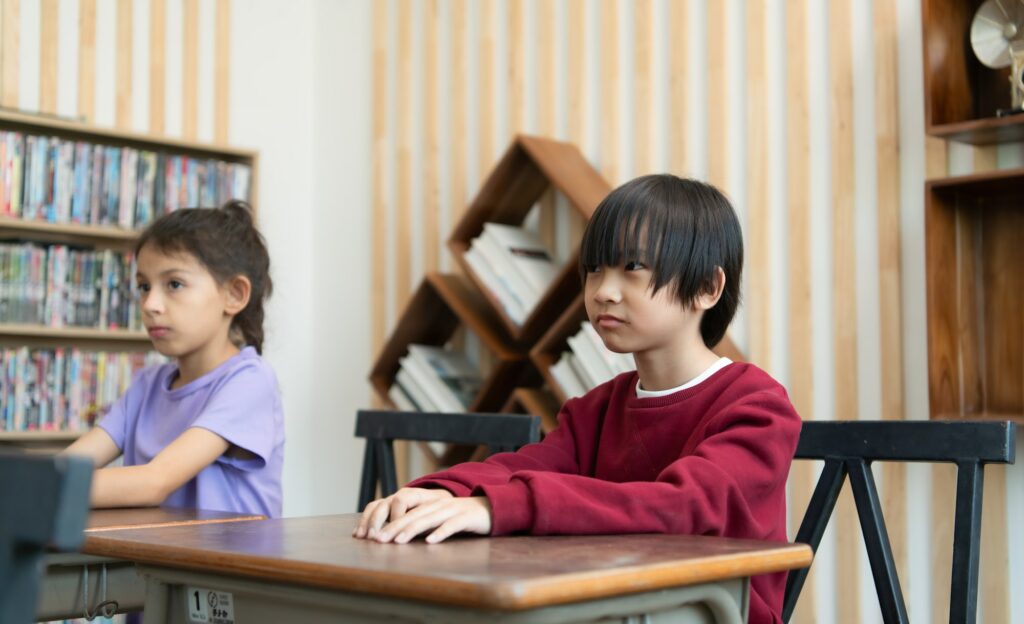Social anxiety is a common concern for children and adolescents, characterized by a persistent and excessive fear of social situations. Children with social anxiety may experience intense anxiety in school, extracurricular activities, or social events. They may be afraid of being judged or evaluated by others and may worry about behaving in a way that will lead to embarrassment or rejection.
Symptoms of social anxiety in children can include physical symptoms such as sweating, shaking, and stomach aches, as well as psychological symptoms such as avoidance of social situations, difficulty making friends, and difficulty participating in class or group activities. Children with social anxiety may also experience low self-esteem, depression, and difficulty concentrating.

There are several treatment options available for children with social anxiety. Cognitive-behavioural therapy (CBT) is an effective treatment for social anxiety. CBT helps children to identify and change negative patterns of thinking and behaviour. It also teaches children coping skills and strategies to manage anxiety in social situations.
Exposure therapy is another treatment for social anxiety. It involves gradually exposing children to the situations they fear in a controlled and safe environment to help them to learn that they can handle these situations without experiencing severe anxiety.
Sometimes medication such as selective serotonin reuptake inhibitors (SSRIs) can also be helpful for some children with social anxiety. Medication should be used in conjunction with therapy and under the guidance of a physician or mental health professional.
Addressing social anxiety early in children is essential as it can interfere with their development and have a negative impact on their academic performance, social interactions, and overall well-being. Working with a mental health professional who is also a trained educator can assist with determining which strategies will be most effective for your child.
Social Anxiety and School Refusal
Another aspect of social anxiety in children is school refusal. School refusal is a condition in which a child consistently refuses to go to school or experiences excessive distress when attempting to go to school. Children with school refusal may experience intense anxiety or panic at the thought of going to school, leading to absenteeism and falling behind in their education.
There can be various causes for school refusal, including bullying, academic difficulties, and social anxiety. Children with social anxiety may be particularly vulnerable to school refusal as they may feel overwhelmed by being in a social setting such as school, where they are expected to interact with their peers and teachers.
School refusal must be resolved early, as it can lead to academic and social difficulties and potential long-term mental health issues if left unaddressed. A comprehensive approach that addresses the child’s emotional and academic needs is essential. This may include working with the school to create a safe and supportive environment, providing individual therapy, and involving the parents in the treatment process.
Cognitive-behavioural therapy (CBT) and exposure therapy can effectively treat school refusal. CBT can help children identify and change negative thinking and behaviour patterns. In contrast, exposure therapy can help children gradually become accustomed to going to school and, ultimately, going to school without experiencing severe anxiety.
Anxiety and school refusal can significantly impact a child’s education and well-being. Parents, teachers, and mental health professionals should work together to address these issues. Two effective strategies in addressing anxiety and school refusal include cognitive-behavioural therapy and family therapy, such as Nonviolent Resistance Treatment (NVR). Cognitive-behavioural therapy helps children identify and change negative thought patterns and behaviours contributing to their anxiety. Family therapy addresses the family dynamics contributing to the child’s school refusal. With the right support and intervention, children with anxiety and school refusal can learn to manage their symptoms and succeed in school.
An STG Professional can assist families in developing a treatment plan that addresses social anxiety and school refusal. Such a treatment plan uses evidence-based strategies that were developed at Harvard University. Book a free intake appointment to learn more.














